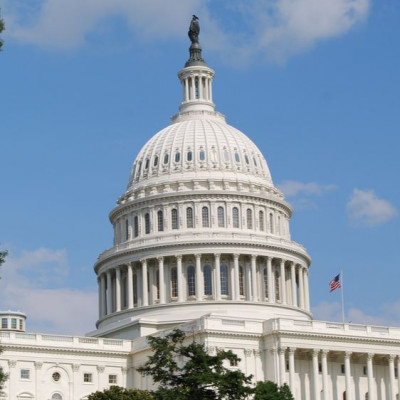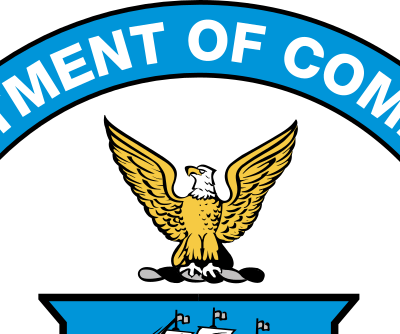April 30, 2017
April 2017 at Policy Integrity:
- Clean Power Plan, Ozone Rule News;
- Resources on Regulatory Bills;
- In the News: EPA’s Unfinished Business, Stealth Repeal;
- Commentary on the Social Cost of Carbon;
- Manufacturing and Regulation Comments;
- Comments to California, Army Corps of Engineers;
- Revesz Speaks at Harvard, NIH
-

Clean Power Plan, Ozone Rule News
Last week, the U.S. Court of Appeals for the District of Columbia Circuit paused its case on the Clean Power Plan as it weighs whether to issue a decision, hold the case in abeyance, or remand the rule to EPA. Richard Revesz argued that the court should issue its decision, as this would resolve many legal questions on EPA’s authority that will simply reappear in later court cases. Before the announcement, Jack Lienke had made the case in Grist for why the court should issue a ruling. The same court also put on hold its case on EPA’s updated ozone standards, in response to a Trump Administration request. In another Grist article, Lienke discussed how this move reveals Scott Pruitt’s disinterest in addressing air pollution.
-

Resources on Regulatory Bills
The House of Representatives has passed several bills that could have devastating effects on the federal regulatory process. To help journalists and policymakers understand the potential impact of some bills currently moving through Congress, we recently published a series of fact sheets. These bills include the Midnight Rules Relief Act, which would allow Congress to repeal thousands of rules in a single resolution; the Regulatory Accountability Act, which would rewrite notice-and-comment rulemaking procedures and create extraordinarily burdensome hurdles in rule implementation; and the Regulations from the Executive in Need of Scrutiny Act, which would require Congress to review and retroactively approve all existing regulations and prevent agencies from issuing statutorily required rules unless approved by Congress.
-

In the News: EPA’s Unfinished Business, Stealth Repeal
In a recent Newsweek op-ed, Richard Revesz discussed Trump administration assertions that EPA “should be declaring victory” in its fight for clean air and water. Revesz writes that the agency is in “no position to declare victory and merely preserve the status quo” given that “large swaths of the country are violating the air and water standards that both Republican and Democratic administrations have agreed were necessary to protect public health.” In a recent piece in The Hill, Bethany Davis Noll describes how the Trump administration is flouting the law by delaying compliance deadlines for environmental regulations, halting many rules indefinitely without complying with procedural requirements while placing them under indefinite reconsideration with an unclear timeline.
-

Commentary on the Social Cost of Carbon
A group of Policy Integrity scholars has published a letter in the Review of Environmental Economics and Policy that argues for using a global Social Cost of Carbon (SCC) estimate in climate policy, in order to induce international cooperation and efficiently address climate change. The letter is coauthored with several distinguished academics, including the late Nobel prize-winner Kenneth Arrow, and Michael Oppenheimer. Denise Grab also published a new essay analyzing the fate of the federal SCC estimates in the wake of Trump’s recent executive order, which requires the estimates to be consistent with a Bush-era guidance document, Circular A-4. Grab argues that the Obama Administration’s estimates are already consistent with this guidance.
-

Manufacturing and Regulation Comments
We recently submitted comments to the Department of Commerce in response to its request for information on regulatory barriers to domestic manufacturing. We recommended that the retrospective review of regulations focus on rules for which actual costs and benefits diverge significantly from predicted costs and benefits, because of changing economic circumstances, new technological innovations, emerging scientific understanding, or initial miscalculations. Prioritizing retrospective review based purely on the volume of opposition from regulated entities—without consideration of regulatory benefits—is an irrational and inefficient approach. We are currently reviewing industry comments requesting to repeal or replace rules ahead of a similar review by EPA, and we plan to publish our analysis in an upcoming report.
-

Comments to California, Army Corps of Engineers
We recently submitted public comments to two California state agencies and the Army Corps of Engineers, discussing how to price climate impacts into planning decisions. The California Air Resources Board’s 2017 Climate Change Scoping Plan Update uses the Social Cost of Carbon (SCC) to value the state’s planned emission reductions, as we recommended in our first set of comments on the plan. To improve the economic analysis, our April comments recommend applying the Social Cost of Methane and monetizing the co-benefits of greenhouse gas reductions. In our comments to the California Public Utilities Commission on its greenhouse gas adder proposal, we recommend that the adder be based on the SCC. Using the SCC to value electricity sources that avoid carbon emissions would be more accurate than the current interim proposal, which prices carbon at $0 per ton for 2017 and increases the adder linearly to $250 per ton by 2030. Our comments to the Army Corp of Engineers encourages the continued use of the SCC in Environmental Impact Statements and other decisionmaking, despite a recent executive order that withdraws support for past federal SCC guidance.
-

Revesz Speaks at Harvard and National Institutes of Health
In two recent speaking engagements, Richard Revesz discussed the evolving landscape of environmental and public health regulation and why cost-benefit analysis remains an important tool for protecting public safeguards. Revesz’s recent talk at Harvard University covered the tool’s 35 year role in the regulatory process and current attempts to tip the scale in favor of deregulation (a podcast of the talk is available here). His talk at the National Institute of Environmental Health Sciences, part of the National Institutes of Health, described how cost-benefit analysis can better translate scientific data on environmental toxins into rational regulation.
